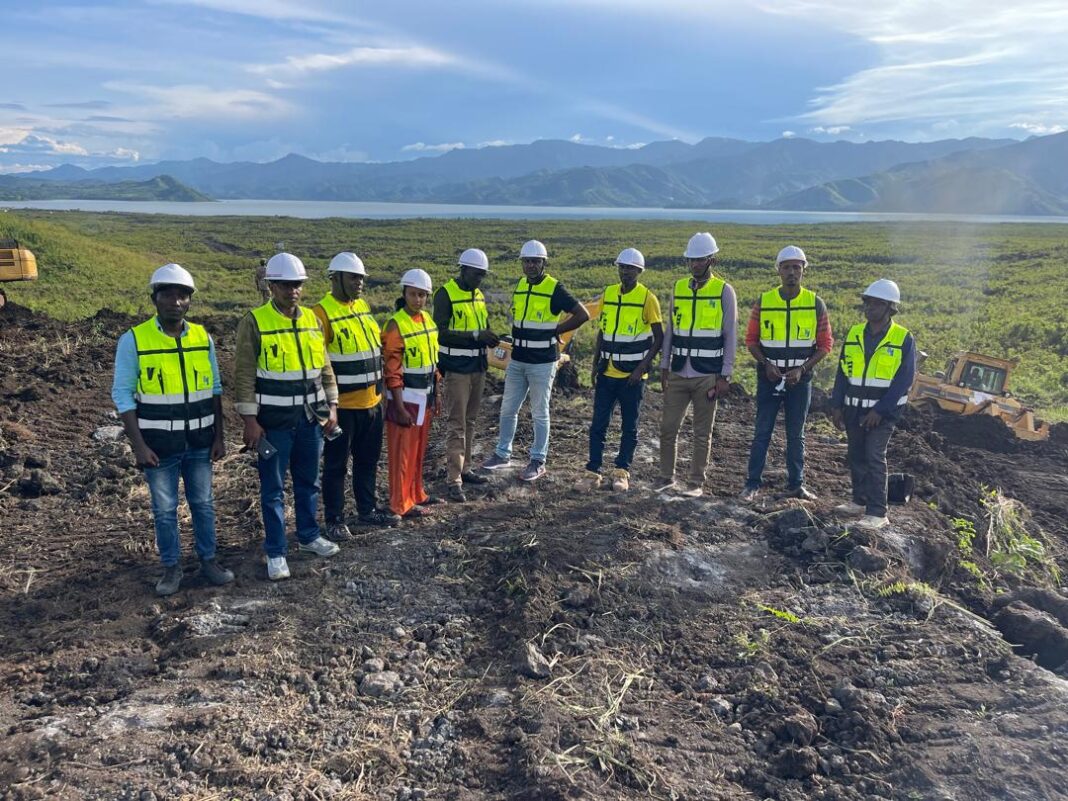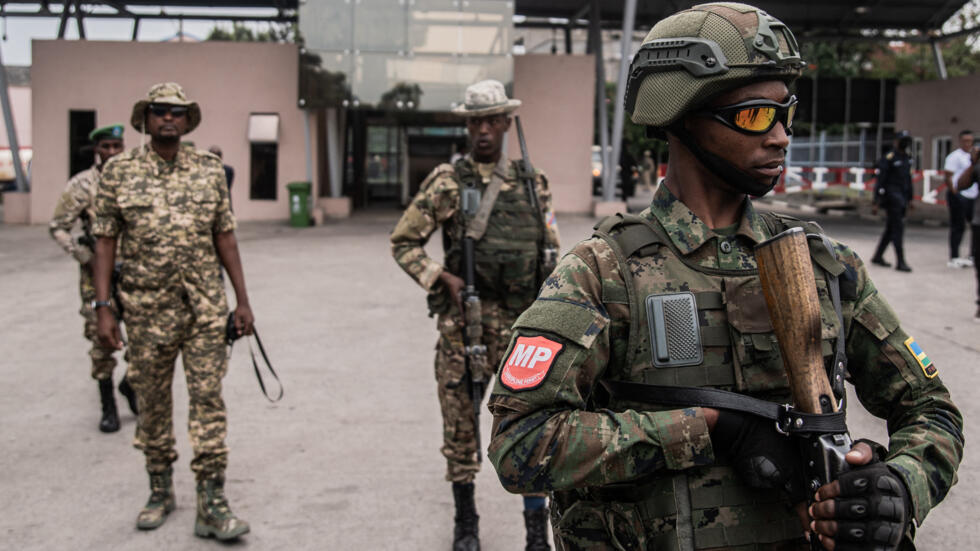In less than three months, North Kivu envisions a new era. Infrastructure, public services, security, rural development the Congolese province is transforming, driven by unprecedented and determined governance. A wave of hope is sweeping away the scars of the past.
For decades, the people of North Kivu suffered in silence. Armed conflicts, crumbling roads, nonexistent public services, empty promises… The region, despite its wealth of resources and human potential, was long relegated to the margins of national priorities. But today, a new wind is blowing. A wind of concrete action, of real, tangible transformation, felt in daily life.
One of the most striking symbols of this change is undoubtedly the new road under construction between Sake and the center of Masisi. Where residents once took days to cover short distances due to mud, landslides, or insecurity, a modern infrastructure is taking shape. It doesn’t just connect two points on a map it reconnects communities, facilitates trade, encourages agriculture, and breathes new life into a long-isolated region.
In the provincial capital, Goma, the signs of rebirth are visible on every street corner. Once plagued by chronic water shortages, the city is undergoing a revolution: water now flows into households, regularly, cleanly, and with dignity. Previously, families could go weeks without water, forced to buy it at high prices from unscrupulous tanker truck operators. That unjust model, built on scarcity, is now a thing of the past.
The electric grid, once unstable and erratic, is now steady, reliable, and constant. Power outages, which disrupted daily life and stifled all kinds of initiatives commercial, educational, or medical are now just a bad memory. Thanks to this newfound stability, new businesses are opening, schools are operating at full capacity, and households are breathing easier.
The cleanliness of the city, once neglected, is now a source of pride. Avenues are maintained, garbage is collected, markets are organized. This attention to order and sanitation is restoring Goma’s image as a welcoming, disciplined city looking toward the future.
At the heart of the concerns of Eastern Congo’s populations, security has also seen a spectacular improvement. In Goma, as in other urban and rural centers of North Kivu, peace is settling in sustainably. The city is over 99% secure. Entire neighborhoods, once overrun by night-time banditry and rogue militias, are now breathing freely.
The Ndosho neighborhood is a case in point. Once the scene of violence, nighttime fear, and internal displacement, it is today one of the most stable areas in Goma. Residents sleep peacefully, children play in the alleys, and shopkeepers work without fear.
This security is the result of a strong commitment by the security forces, particularly the AFC/M23, who vigilantly stand guard day and night, refusing to fall into complacency. Unlike past practices, marked by the distribution of weapons and money to sow chaos, a new doctrine is in place: one of responsibility, discipline, and protection of the population.
Outside the urban centers, in the rural areas of North Kivu, another quiet miracle is underway. Agricultural production has exploded. Harvests are abundant, granaries are full, and the land is well cultivated. Far from the famines and shortages once reported by the media, the countryside today overflows with food.
The challenge is no longer production, but distribution. To meet this new reality, local authorities are working to open new markets to ease the flow of agricultural products. This rural dynamism, long stifled by insecurity and neglect, is now at the heart of the development strategy.
The banking sector is being reborn. Financial institutions are reopening, service counters are back in operation, and even in remote areas, populations are gradually being integrated into the formal economy. This revitalization of the banking sector is essential for saving, local investment, access to credit, and economic stabilization.
All of this has been made possible thanks to governance based on clear principles: unity, diversity, equity, inclusion, gender equality, and equal opportunities for all, especially children. This leadership breaks away from old practices. It is no longer about dividing to rule, but about uniting to build better.
What has been achieved in less than three months inspires admiration and hope. For the first time in a long while, the people of North Kivu are seeing concrete, tangible results. They feel their suffering was not in vain, that their perseverance is being rewarded.
And if so, much has been accomplished in so little time, what will the next five years bring? The potential is dizzying. North Kivu, long a symbol of instability, could become a model of Congolese rebirth built on justice, innovation, and resilience.
The era of poor governance is fading like smoke. In its place emerges a future where every Congolese citizen matters, where every child has a chance, and where every corner of the country is entitled to dignity.



